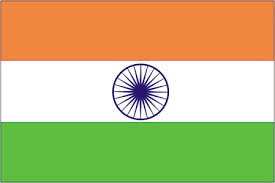Statement delivered by Ambassador (Dr.) Pankaj Sharma, Permanent Representative of India to the Conference on Disarmament during the 21st Annual Conference of High Contracting Parties to Amended Protocol-II to the CCW in Geneva on November 12, 2019.
Mr. President,
The Indian delegation congratulates you on your election as the President of the Twenty First Conference of the High Contracting Parties to Amended Protocol II. We assure you of the full support of our delegation in ensuring the success of this meeting.
2. India attaches high importance to the full implementation of AP II as well as its universalization. In this context, it is our privilege to welcome Benin as a fellow High Contracting Party to AP II. We have fulfilled our obligations under the Protocol related inter-alia to non-production of non-detectable mines as well as rendering all our anti-personnel mines detectable. India is observing a moratorium on the export and transfer of landmines. Information regarding our obligations under AP II is being regularly disseminated to our Armed Forces. Mines that have been used for defensive military operations are laid within fenced perimeters and marked, in accordance with the requirements specified in AP II. Post operations, these mines have been cleared by trained troops.
3. We believe that AP II strikes a balance between humanitarian concerns on landmines and legitimate defence requirements, particularly of States with long borders. We support the vision of a world free of the threat of landmines and believe that the availability of militarily effective alternative technologies that can perform, cost effectively, the defensive function of anti-personnel landmines will facilitate the achievement of this goal. An integral part of efforts to avoid civilian casualties is to enhance public awareness on landmines. Further, mine victims are assisted in rehabilitation with financial compensation, employment and health assistance. India's ratification of the Convention on Rights of Persons with Disabilities underscores the importance we attach to victim assistance. We would also like to stress the importance of development and sharing of technology to protect civilians against the indiscriminate use of mines as well as for mine clearance.
4. India is a leading contributor to UN peacekeeping operations and has extended assistance to international demining and rehabilitation efforts. Indian mine clearance professionals have contributed to both clearance and clearance training in several countries including in Cambodia, Lao PDR, Angola, Benin and Afghanistan. We have also provided support for mine clearance in Sri Lanka. In the last six years, over 750 personnel from various countries have undergone training in India in mine clearance and explosives disposal. We remain committed to providing capacity-building and assistance to countries upon their request.
5. AP - II serves as an appropriate framework for addressing the issue of Improvised Explosive Devices (IEDs) which is today the weapon of choice for terrorists and illegal armed groups. We support continuing the useful work on IEDs under the CCW framework with focus on addressing the threat of IEDs, while underlining that the responsibility for enforcing the rule of law, including respect for international law lies with the legitimate government authority of that State Party. We believe that while there is scope for enhancing cooperation among States in exchange of expertise and information sharing on countermeasures, this should be done on a voluntary basis keeping in mind confidentiality of sensitive information.
6. India's Centre of Excellence for training on IEDs has organized several training courses in which a number of service personnel from foreign countries have participated alongside Indian participants. Delegations from Australia, Bangladesh, Bhutan and Vietnam have visited the Centre of Excellence during the past two years. Further, a number of delegations visited our Centres of Excellence during the course of the current year and have been trained in counter-IED and explosive disposal. In September 2018 India along with six other BIMSTEC countries comprising 250 participants conducted a training exercise on Counter –Terrorism which included counter-IED.
7. In February this year, India organised an International Seminar on “Counter-Improvised Devices (IED) Strategy”, which was attended by 22 international delegates from 12 countries. The focus was on exchange of national experience, capacity building and industry engagement. This year in March, India participated in the Expert Working Group in on Humanitarian Mine Action conducted under the aegis of ADMM Plus in Indonesia.
8. India will continue to support the implementation of AP II at the national, regional and global levels.
Thank you, Mr. President.












